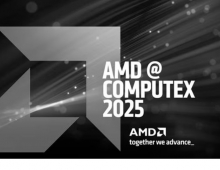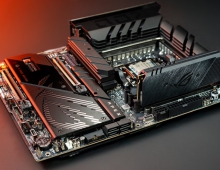
AMD Reports Loss, Exits From High-density Server Business
AMD on Thursday reported an adjusted loss and a steep fall in sales for the first quarter and said it expected weak demand for personal computers to continue for some time. Chief Executive Lisa Su said the PC market would remain challenged as original equipment manufacturers focus on lean inventories.
"Building great products, driving deeper customer relationships and simplifying our business remain the right long-term steps to strengthen AMD and improve our financial performance," said Su. "Under the backdrop of a challenging PC environment, we are focused on improving our near-term financial results and delivering a stronger second half of the year based on completing our work to rebalance channel inventories and shipping strong new products."
The company, which said in October it would cut 7 percent of its workforce, has been shifting its focus to gaming consoles and low-power servers to combat falling laptop sales.
But progress has lagged due to continued weak PC and graphic card sales as well as competition from Intel.
AMD's Computing and Graphics segment revenue decreased 20 percent sequentially and 38 percent from Q1 2014. The sequential decrease was primarily due to lower desktop and notebook processor sales and the annual decrease was driven by lower desktop processor sales and GPU channel sales.
Operating loss was $75 million, compared with an operating loss of $56 million in Q4 2014 and operating income of $3 million in Q1 2014. The sequential decrease was primarily driven by lower desktop and notebook processor sales, partially offset by lower operating expenses. The year-over-year decrease was primarily driven by lower desktop processor sales.
Enterprise, Embedded and Semi-Custom segment revenue decreased 14 percent sequentially, primarily driven by seasonally lower sales of semi-custom SoCs. The year-over-year decrease of 7 percent was primarily driven by lower server processor sales.
Su expects business to pick up in the second half of the year, pivoting hopes on the release of Windows 10 and new product offerings by the company.
AMD has also pulled out of the market for high-density servers, reversing a strategy it embarked on three years ago with its acquisition of SeaMicro. The dense server system business helps firms reduce power consumption and improve space efficiency for data centers.
AMD said the move is part of its effort to "simplify and sharpen" its investment focus. As a result, it is taking a charge of $75 million.
The company said it recorded a charge of $75 million in the first quarter related to the sale of the business as well as an additional $12 million charge related to a restructuring plan last year.
AMD's net loss widened to $180 million in the quarter ended March 28 from $20 million.
Excluding items, AMD reported a loss of 9 cents per share.
Revenue fell 26.2 percent to $1.03 billion.
AMD forecast current-quarter revenue to fall 3 percent, plus or minus 3 percent, from the first quarter.





















